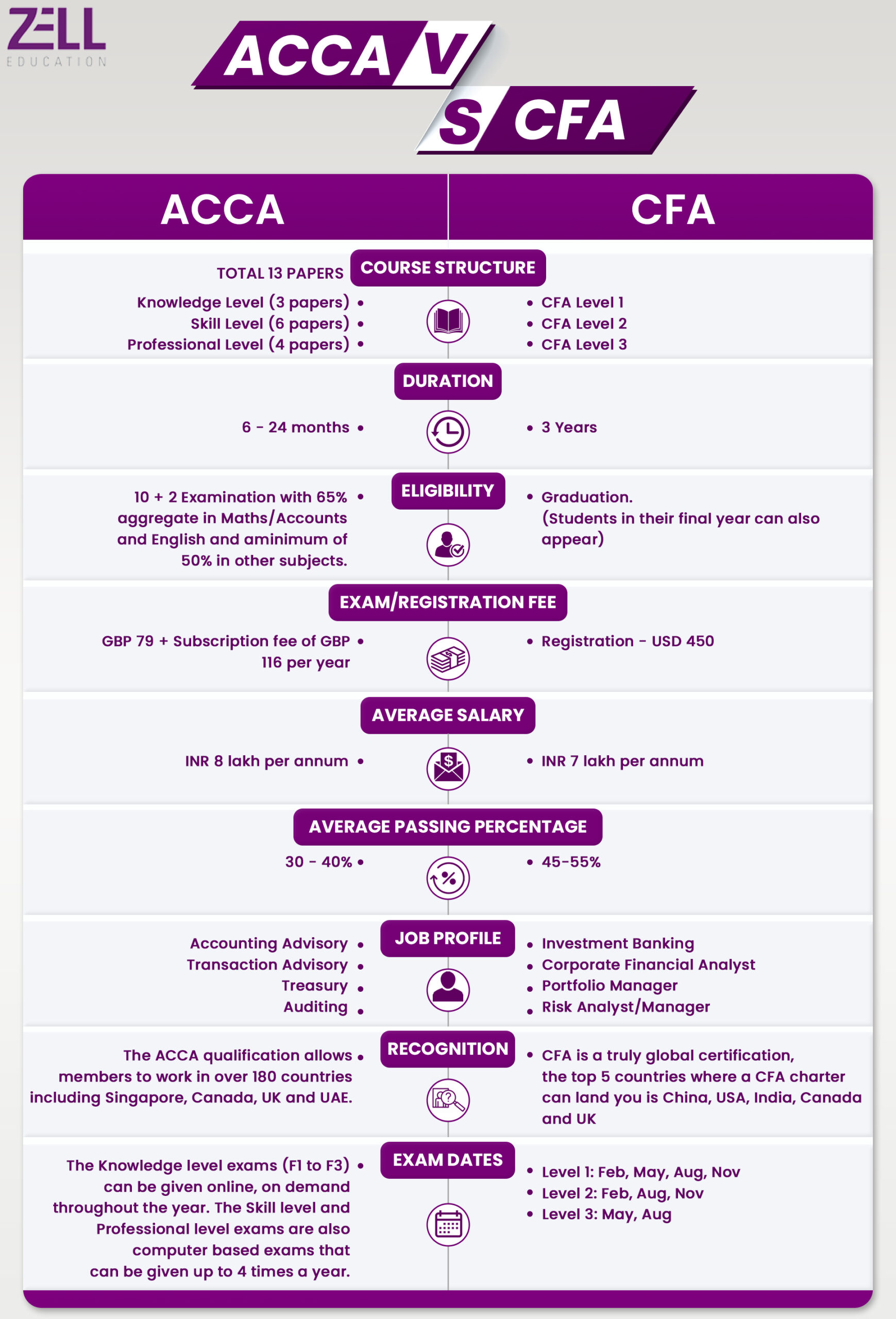ACCA vs CFA: Which Should You Study?
The major mistake I’ve seen candidates make here is that they assume that the choice of ACCA vs CFA is the one they are making. That is completely incorrect! The choice is primarily of whether they want to understand finance, accounting and business (ACCA) or specialize in finance (CFA). And unfortunately, most choices are made based on either which course they’ve heard is better, or what most friends are doing.
ACCA Vs CFA
Let me help clear the confusion.
-
BOTH the courses are brilliant in their own stand
-
BOTH have international recognition and exposure
-
BOTH have scope in India (yes, ACCA and CFA have growing scope in India)
-
BOTH are similar in duration (24–36 months)
-
BOTH are similar in their cost/ fee structure (2–4 lacs, depending on number of attempts)
-
BOTH can have fresher salaries ranging from INR 4–8 lacs p.a. (a lot of our students at Zell are pursuing both simultaneously!)
What is different about the courses are the following:
-
ACCA course teaches us essentially what CAs learn – accounting, financial management, costing, auditing, tax and has a very powerful business paper now. Most candidates pursue ACCA due to its flexibility in duration and the high value its garnering in India
-
CFA teaches us everything to do with investments, financial markets – equity, debt, derivatives, etc., portfolio management, wealth management, hedging and trading techniques
-
As an ACCA, you can see your future in fields such as Accounting Advisory (IFRS), Risk Advisory, Mergers & Acquisitions, Valuations, Internal Audit, Assurance, International Taxation, Transfer Pricing, Forensic Auditing, Financial Reporting, etc.
-
As a CFA, you can see yourself as a Portfolio Manager, Wealth Manager, Investment Banker (may need an MBA for this as well), Equity Research Analyst, Trader/ Dealer in Derivates and Currency Markets, etc.
-
You can appear for ACCA almost as soon as you’re out of school! We have students pursuing it in their 11th grade and every grade from thereon! No eligibility criteria as such in terms of accounting background, marks, age, etc. (thanks to the FIA route)
-
You can appear for CFA if you are in your final year of graduation or thereafter, and must possess an international passport
-
ACCA and CFA both cost ₹3.5 to 4 lacs depending on the USD and GBP rate including training fees, exam fees, registration, study material, etc.
To summarise, if you’re confused between the two, I suggest ask for people around you who would be working in the profiles I mentioned earlier, and speak to them. Take a call based on that.
The Chartered Financial Analyst is a globally recognised qualification in the field of finance and investment. If you have recently completed your graduation or are appearing for your final semester, you may be eligible to become a CFA. Interested? We highly recommend checking out our Chartered Financial Analyst (CFA) course.










